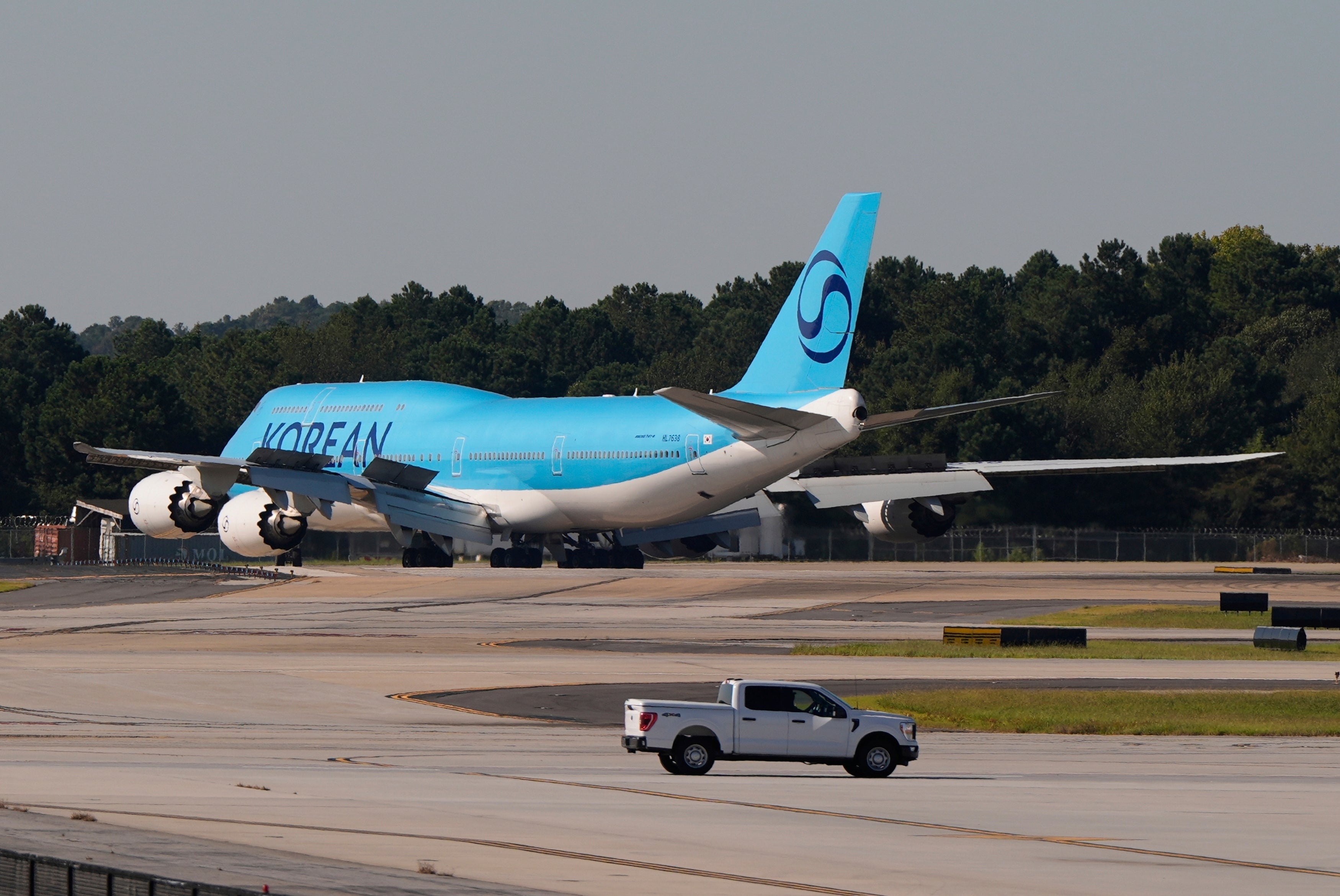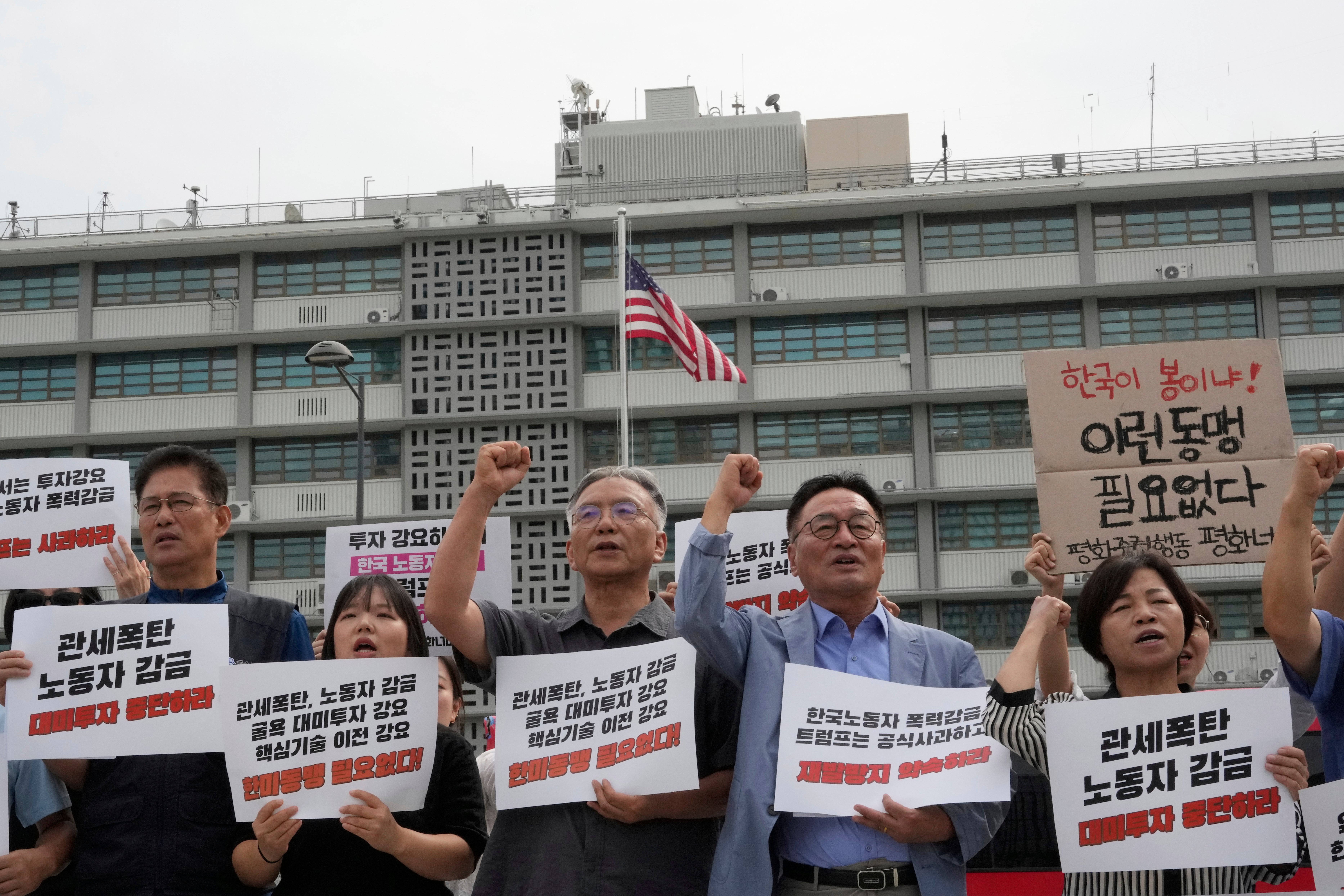The release of hundreds of South Korean workers arrested by federal immigration agents at a Hyundai factory last week has been delayed due to “circumstances on the U.S. side,” Korean officials have said.
More than 300 South Korean workers have been held at an immigration detention center in Folkston, in southeast Georgia, since last Thursday, after ICE agents raided the electric battery plant, which is under construction on the campus of Hyundai’s sprawling auto plant west of Savannah. A total of about 475 people were arrested in the raid.
The incident sparked an international dispute, with Seoul’s Foreign Ministry expressing “concern and regret” over the operation. “The economic activities of Korean investment companies and the rights and interests of Korean citizens must not be unfairly infringed upon during U.S. law enforcement operations,” the ministry said following news of the arrests. The U.S. agreed to release the workers and they were expected to board a charter flight to return home.
A chartered flight headed from South Korea to Atlanta to pick up the workers, with them expected to leave as early as Wednesday afternoon.
However, Seoul’s Foreign Ministry later said it would be difficult for the aircraft to return with the workers Wednesday, The Wall Street Journal reported. Officials did not elaborate on the delay, but said Secretary of State Marco Rubio was to meet with South Korean officials to continue negotiations.

The Independent has reached out to the Department of Homeland Security and ICE about the reason for the reported delay.
Officials from both countries are discussing details that could allow all the detained workers to leave the U.S. voluntarily instead of being deported, according to the Journal. The type of removal could impact the ability of the workers to return to the U.S. in the future.
A deportation order could make someone ineligible to return to the U.S. for up to 10 years, while people who agree to “voluntary departure” may be able to apply for a visa to return to the U.S., according to the Department of Justice.

U.S. authorities said previously that the Korean detainees were “unlawfully working” at the plant at the time of their arrest.
However, Charles Kuck, a lawyer representing several of the men arrested, said the “vast majority” of the workers from South Korea were doing work that is authorized under the B-1 business visitor visa program.
A B-1 visitor for business visa allows foreign workers to stay for up to six months, getting reimbursed for expenses while collecting a paycheck back home.
Construction of the battery factory is part of a $7.6 billion joint venture between car manufacturer Hyundai and another South Korean firm LG Energy. The two companies are collaborating on the Hyundai “Metaplant” complex that is considered the largest economic development project in Georgia’s state history.







